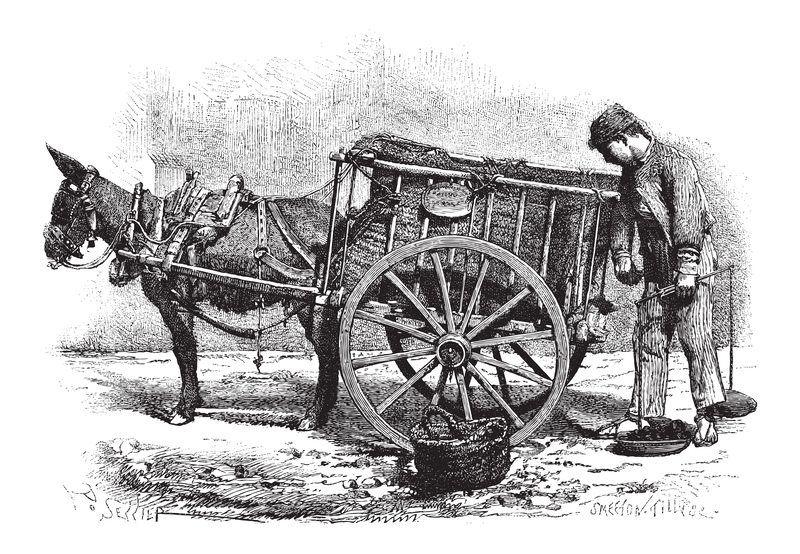How to Effectively Lower Your Household Waste: A Comprehensive Guide
Are you looking for powerful ways to lower your household waste and embrace a more sustainable lifestyle? Cutting down on home waste not only benefits the environment but can also save you money and create a healthier home. In this in-depth article, we'll explore proven strategies to reduce, reuse, and recycle so you can confidently minimize waste in your daily routine.
Why Should You Lower Your Home Waste?
Every year, households generate millions of tons of waste. Much of this waste ends up in landfills, pollutes the environment, and contributes to climate change. Reducing household waste is a powerful step toward sustainable living, resource conservation, and environmental protection. By embracing a low-waste lifestyle, you:
- Conserve natural resources and energy
- Reduce landfill overflow and methane emissions
- Save money on products and waste removal
- Support a cleaner and healthier environment
Now, let's dive into the actionable steps to help you lower your household waste effectively.

1. Adopt the '5 Rs' of Waste Reduction
The foundation of minimizing home waste is to learn and implement the '5 Rs': Refuse, Reduce, Reuse, Recycle, and Rot. Understanding these principles sets the stage for lasting change.
Refuse
Say no to unnecessary products, single-use plastics, freebies, and over-packaged goods. By refusing excess items, you limit the potential waste before it enters your home.
- Politely decline plastic straws, utensils, and bags when offered.
- Unsubscribe from junk mail and unnecessary magazine subscriptions.
- Avoid impulse purchases that likely become clutter or waste.
Reduce
Lowering household waste also means buying and using less. Choose quality over quantity and plan purchases to avoid overconsumption.
- Buy only what you need and use up items before purchasing more.
- Opt for products with minimal packaging or buy in bulk.
- Limit food waste by planning meals and using a shopping list.
Reuse
Get creative with reusing items instead of throwing them away!
- Repurpose containers, jars, and bags for storage.
- Choose reusable water bottles, coffee mugs, and shopping bags.
- Repair clothes, electronics, and furniture whenever possible.
Recycle
Proper recycling helps divert waste from landfills, but it's crucial to recycle only what is accepted in your community.
- Learn your local recycling guidelines to avoid contamination.
- Rinse recyclables and remove lids or labels if required.
- Consider participating in recycling programs for batteries, electronics, and textiles.
Rot (Compost)
Composting is a powerful tool for lowering home waste! By turning food scraps and yard waste into nutrient-rich compost, you'll reduce landfill contributions and create a valuable product for your garden.
- Compost fruit and vegetable scraps, coffee grounds, and eggshells.
- Avoid composting dairy, meat, and oily foods (unless using a specialized system).
- Try vermiculture (worm composting) or a bokashi system for small spaces.
2. Practical Ways to Lower Household Waste in Everyday Life
Ready for actionable strategies? Here's how you can minimize waste in different areas of your home and daily life.
In the Kitchen
- Meal plan to avoid overbuying and wasting food.
- Store food properly to extend its shelf life.
- Use leftovers creatively--try soups, salads, or casseroles.
- Choose reusable cloth napkins, towels, and storage containers instead of disposables.
- Compost food scraps to reduce kitchen waste.
During Grocery Shopping
- Bring your own bags, produce sacks, and containers for bulk goods.
- Buy in bulk to reduce packaging waste.
- Choose products with recyclable, compostable, or minimal packaging.
- Buy local and seasonal produce with fewer packaging requirements.
In the Bathroom
- Swap bottled toiletries for bars of soap, shampoo, and conditioner.
- Try reusable cotton rounds, menstrual cups, and cloth towels.
- Choose refillable or concentrated cleaning products.
In the Laundry Room
- Make homemade laundry detergent or choose brands with minimal packaging.
- Use wool dryer balls instead of single-use dryer sheets.
- Wash clothes in cold water and only when necessary to save water and energy.
For Cleaning and Household Maintenance
- Make natural cleaners with ingredients like vinegar and baking soda, reducing packaging waste.
- Opt for reusable cleaning cloths and mop pads.
- Repair or upcycle furniture and home goods.
For Children and Pets
- Buy secondhand toys and donate outgrown items.
- Use cloth diapers, wipes, and baby bibs instead of disposables.
- Make homemade pet treats and repurpose household items as toys.
3. Smart Shopping: Choose Low-Waste Products
Your buying decisions directly influence your household's waste output. When shopping, prioritize:
- Durable, high-quality goods that last longer and avoid frequent replacements.
- Minimalist packaging--seek out bulk, refill, or package-free options.
- Products made from recycled or upcycled materials.
- Natural, biodegradable materials instead of plastics.
- Support brands with circular or take-back programs.
Every purchase is a vote for the kind of world you want to support!
4. Declutter Responsibly (Don't Just Throw Away)
Decluttering helps lower household waste only if done mindfully. Instead of tossing unwanted items, consider:
- Donating usable goods to charities or shelters.
- Selling items online or at garage sales.
- Repairing or upcycling whenever possible.
- Recycling textiles, electronics, and hazardous waste at designated facilities.
Remember, proper disposal keeps materials out of landfills and allows them to be reused or recycled effectively!
5. Lowering Household Waste: Involve the Whole Family
Reducing home waste is more effective when everyone participates. Here's how to encourage family (and even roommates):
- Hold a waste audit--check your trash to see where you can improve.
- Set low-waste goals or make a challenge out of reducing waste together.
- Create easy-access recycling and compost bins throughout the house.
- Teach children to reuse and recycle through fun activities and stories.
- Share your successes and tips with friends and neighbors.
6. Track Your Progress & Stay Motivated
Lowering household waste is a journey, not a one-time fix! Here are ways to keep yourself on track and inspired:
- Weigh or count your trash bags weekly to observe improvements.
- Reward yourself for milestones reached (e.g., going a week without landfill garbage).
- Document and share your journey on social media or with a local green group.
- Learn about environmental impacts to understand the importance of your efforts.
7. Common Barriers to Reducing Home Waste (& How to Overcome Them)
Even the most dedicated families can face obstacles when trying to minimize their household waste. Here's how to address the top challenges:
Convenience Over Waste Reduction
- Tip: Set up a convenient waste sorting and recycling system in your home to make the sustainable choice easier than the trash bin.
Lack of Recycling/Composting Access
- Tip: Seek out local drop-off centers or arrange neighborhood composting if services are lacking.
Resistance From Household Members
- Tip: Educate gently, lead by example, and celebrate small victories together.
Uncertainty About How to Recycle or Compost Properly
- Tip: Contact your local waste authority or search online for up-to-date guidelines.
8. The Long-term Benefits of Lowering Household Waste
When you consistently work to decrease home waste you:
- Save money on groceries, disposables, and trash services.
- Create a healthier and less cluttered home environment.
- Teach children lifelong sustainable habits.
- Strengthen your community by supporting local and eco-friendly businesses.
- Reduce your ecological footprint, protecting the planet for future generations.

FAQs on Lowering Household Waste
What is the most effective way to lower household waste?
The most effective approach combines refusing unnecessary items, reducing consumption, reusing what you have, recycling responsibly, and composting organic waste. Consistency and awareness make the biggest impact!
Does lowering home waste require a huge lifestyle change?
Not necessarily. Small switches--like using reusable bags and composting--can add up to major waste reduction over time.
Can I lower household waste on a tight budget?
Yes! Many zero-waste practices, like buying less and reusing items, can help you save. You don't need to buy expensive "eco" products to make a difference.
How do I encourage my family to participate?
Lead by example, make it fun and educational, and celebrate your collective progress.
What about recycling in areas with limited services?
Focus on reducing and reusing. For specialty recycling, seek out drop-off events, mail-in programs, or community groups working toward better solutions.
Conclusion: Lowering Your Household Waste for a Sustainable Future
Effectively lowering your household waste is about making thoughtful choices every day. Whether you're just starting out or looking to fine-tune your zero-waste efforts, the tips above will help you have a noticeable, positive impact. Remember, every small action matters--together, we can create cleaner homes and a healthier planet.
Ready to start? Pick one area to focus on this week--whether it's composting, reducing plastic, or shopping smarter--and watch your home waste shrink while your sense of accomplishment soars!
```